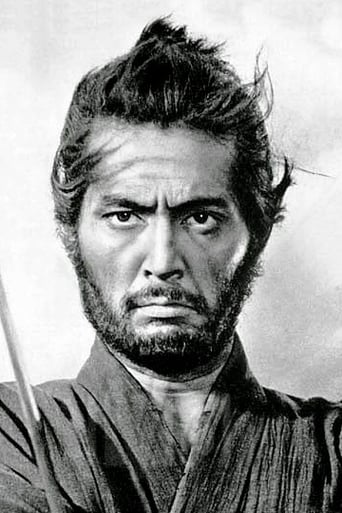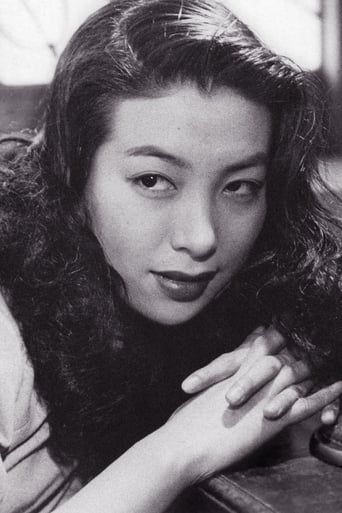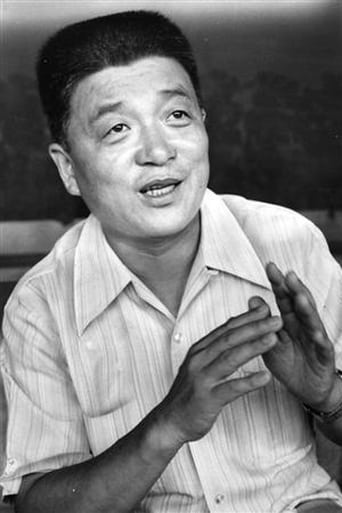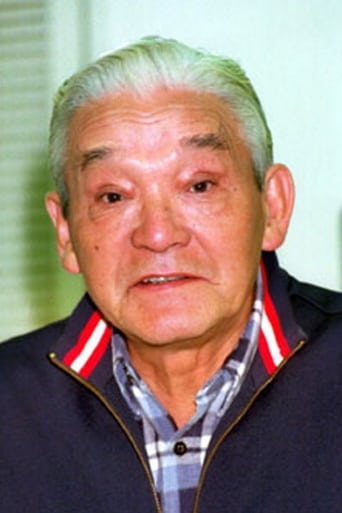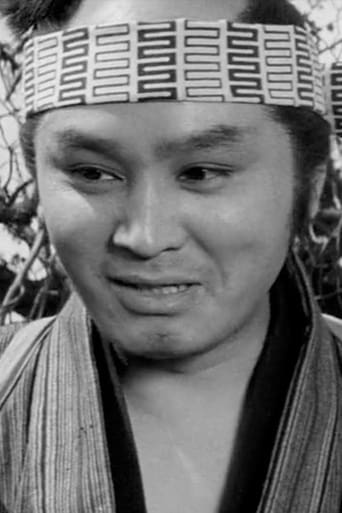Console
best movie i've ever seen.
Limerculer
A waste of 90 minutes of my life
Hayden Kane
There is, somehow, an interesting story here, as well as some good acting. There are also some good scenes
Claudio Carvalho
Kaji is sent to the Japanese army labeled of Red and is mistreated by the vets. Along his assignment, Kaji witnesses cruelties in the army; he revolts against the abusive treatment spent to the recruit Obara that commits suicide; he also sees his friend Shinjô Ittôhei defecting to the Russian border; and he ends in the front to fight a lost battle against the Soviet tanks division. "The Human Condition – Parts III & IV" is the first sequel of the anti- war masterpiece by Masaki Kobayashi. The story is impressively realistic and magnificently shot with top-notch camera work, giving the sensation of a documentary. But maybe the most impressive is to see the treatment of the Japanese military with their soldiers. If they treated their own compatriots with such brutality, imagine how the enemies would be treated? My vote is ten.Title (Brazil): Not Available
Theo Robertson
I fell in love with this trilogy as a teenager in the 1980s . Getting to see part one of THE HUMAN CONDITION after a gap of 25 years reminded me that love is never eternal . The aesthetic beauty of this cinematic epic remained but its personality had changed beyond all memory , a memory that had cheated and like a disloyal lover it's an experience that hurts . Seeing part two means the hurt continues . By no means a bad film the subtext of a man trying to retain his humanity in an inhumane society becomes more and more ridiculous as the story continues Commentators on this page have stated how overdone this humanism is and I can't believe I didn't notice this on first viewing in the mid 1980s . One serious criticism about BRIDGE ON THE RIVER KWAI is that it sugar coated the conditions of a Japanese POW camp and likewise this was a major flaw with the first part of THE HUMAN CONDITION with its laid back Manchurian labour camp . In reality the only difference between the Nazi regime and the Imperial Japanese one is that the Nazis used gas to murder its slave population and one wonders if Kaji has been conscripted in to an alternative universe rather than the Japanese Imperial Army ! Much of the running time is composed of :Kaji: Excuse me Commanding Officer but I have read the rule book and this bullying of the recruits is wrong CO: Private Kaji you're starting to sound like that British officer I knew who worked on the Burma railway but you're such a decent , caring wonderful human being I'll rewrite the rule book just for your benefit even though you've only been in the army for two minutes and a suspected communist traitor . The veterans won't like it though Cut to next scene where Kaji gets a hiding from the veterans Having a nice guy as a protagonist so the audience can identify with himis one thing but the pious stand up nature of Kaji becomes so ridiculously overdone as to become almost laughable . I say " almost" because this isn't a film that will make you laugh What stops the film being destroyed by the characterization is the sheer beauty of it . Every scene is exceptionally well framed and shot and despite the flawed characterizations is well acted enough to remain compelling . It also contains one of the greatest battle scenes committed to celluloid where the understrength Kwangtung unit vainly fights against the Soviet offensive . This Soviet offensive ( Operation August Storm ) saw the Red Army kill tens of thousands of Japanese troops and capture hundreds of thousands in the space of a couple of weeks . Indeed the official Soviet history books stated the reason for the Japanese surrender wasn't the atom bombs being dropped on Hiroshima and Nagasaki but the spectacular defeat in Manchuria It's strange that such a flawed film as this should stay in my memory so vividly but THE HUMAN CONDITION is such a vividly beautiful film that its flaws can be easily forgiven - and eventually forgotten
MartinHafer
This is the second of three films that make up "The Human Condition" trilogy. The extremely long films are based on an extremely long set of novels (in six volumes) by Jumpei Gomikawa. The books are about the journey of a man named Kaji who is simply born at the wrong time and place. His ideas about the worth of the individual and the humanity of mankind fly in opposition to the militarism of WWII-era Japan. And, not surprisingly they get him in lots of trouble. In the first film, he's assigned to be the production manager at a mine that is worked by prisoners--and the people in charge couldn't care less about how many of them they kill in the process. But Kaji's humanistic ideals are put into action instead and at first they are very successful. But the military men hate him and when he stumbles, they attack him like wolves.Here in part II, Kaji's been drafted and sent to basic training. He's seen as a trouble-maker because of his experience at the labor camp, but Kaji is a great soldier. And, unlike the average soldier in the company, he cares about the individual. So, when recruit Obara is beaten and humiliated, Kaji is the only one who sticks up for the guy--although with only one man supporting him and the rest tormenting him, what happens next isn't at all surprising--Obara kills himself. The soldiers in the unit are actually pretty happy about this--Obara was a weakling. But Kaji refuses to back down and fights his superiors, as he is fighting for what is right--and brutalizing and disregarding a weak individual is wrong.Later, Kaji manages to be promoted and he's placed in charge of a group of older recruits (as the war is going badly, they began bringing up less and less fit men to serve). He refuses to brutalize his men and the leaders of the older veterans beat Kaji up regularly. He refuses to fight back--sort of like Gandhi. Again and again he's beaten and again and again he does nothing. And, he tries to protect his men as much as he can.Later, when the war is all but over, Kaji is sent along with other ill-prepared men to meet the Russian army and their tanks. And, after this slaughter occurs, the movie ends...and Kaji is left alive on the battlefield.Much of the film seemed to be a criticism on the pointlessly brutal system where underlings were beaten for no reason whatsoever by their immediate superiors. The officers did nothing to change this and Kaji still refuses to bend to this insane situation. Instead of training focusing on teamwork and camaraderie, it's based on destroying the weak and empowering the amoral. All in all, a depressing but well made indictment on the Japanese militaristic mentality of the day. If you are looking for a similar sort of film, try finding "Fire on the Plains" (also 1959) or "The Burmese Harp" (1956). Well worth seeing.
Polaris_DiB
Or, as with the Lord of the Rings books, part III and IV.Here is featured Kaji's military exploits in boot camp and the Manchurian front. As predictable based on the previous movie, Kaji beats heads with the military and comes out worse for wear from it. The better side of these movies is Kaji's critical thinking and intelligence, but this time around he makes some pretty foolish decisions considering that at this point he is not only without power, but completely suspect. Nevertheless, our headstrong hero manages to protect his everyman principles and save a few trainees from being severely beaten at boot-camp--this time largely by taking the beatings himself. I have to admit, there's only so many times you can watch Kaji getting beaten up before you begin to think that it's all getting pretty ridiculous. Not a whole lot was gained by his actions this time around for the amount of pain and humiliation he endures.A particular subplot of note involves the mentally unstable Obara, a Japanese Pvt Pyle from thirty years before Kubrick's Full Metal Jacket, who meets a very similar fate. In fact, it's pretty certain that Kubrick saw this movie, though the effort may have been returned considering that some of the later battle scenes in this movie seem right out of Paths of Glory, which was made three years before this one. Of course, my Kubrick comparisons may simply have something to do with Kobayashi's widescreen compositions, where every amount of positive and negative space is used to careful, calculating effect.Meanwhile, the prolonged battle sequences at the end of Part IV are something unto themselves. After the long and political journey we've taken through Japanese nationalism and its corruption, Kobayashi doesn't shy in the least bit from showing dismembered limbs, blown up bodies, and madness taking away men's lives. And it's interesting to see that Kaji, no longer in a place to stand up to authority, no longer has the ability to control his own madness.These two parts are slightly looser than the first third of The Human Condition. A long sequence involving a hospital stay sticks out like a piece from a different puzzle especially, in what is for the most part a carefully crafted novelistic film. Not a whole lot is added by Kaji's experiences in the hospital except for a simple set-up of a later relationship and the death of a corrupt PFC. Of the entire 7hrs30mins the complete movie has run so far, I do believe a fair bit of Part III could have been cut out.So now we are left with Kaji's newfound guilt and battle experience as he becomes a POW to the Russians. Considering how ineffective he was at creating positive change in this second third as opposed to the first third, it's not looking like he's got a whole lot of ground left to stand on, and now he has to seriously question himself as well.--PolarisDiB


